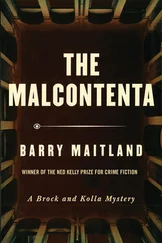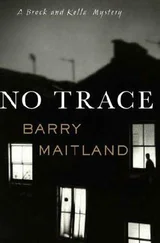Barry Maitland - The Marx Sisters
Здесь есть возможность читать онлайн «Barry Maitland - The Marx Sisters» весь текст электронной книги совершенно бесплатно (целиком полную версию без сокращений). В некоторых случаях можно слушать аудио, скачать через торрент в формате fb2 и присутствует краткое содержание. Жанр: Полицейский детектив, на английском языке. Описание произведения, (предисловие) а так же отзывы посетителей доступны на портале библиотеки ЛибКат.
- Название:The Marx Sisters
- Автор:
- Жанр:
- Год:неизвестен
- ISBN:нет данных
- Рейтинг книги:3 / 5. Голосов: 1
-
Избранное:Добавить в избранное
- Отзывы:
-
Ваша оценка:
- 60
- 1
- 2
- 3
- 4
- 5
The Marx Sisters: краткое содержание, описание и аннотация
Предлагаем к чтению аннотацию, описание, краткое содержание или предисловие (зависит от того, что написал сам автор книги «The Marx Sisters»). Если вы не нашли необходимую информацию о книге — напишите в комментариях, мы постараемся отыскать её.
The Marx Sisters — читать онлайн бесплатно полную книгу (весь текст) целиком
Ниже представлен текст книги, разбитый по страницам. Система сохранения места последней прочитанной страницы, позволяет с удобством читать онлайн бесплатно книгу «The Marx Sisters», без необходимости каждый раз заново искать на чём Вы остановились. Поставьте закладку, и сможете в любой момент перейти на страницу, на которой закончили чтение.
Интервал:
Закладка:
‘Yes, he was born in Jerusalem Lane,’ Kathy said, recalling the account which Mr Hepple the solicitor had given of the history of the Lane.
Judith Naismith stared at her, astounded, ‘You know, then?’
‘Not everything,’ Brock interjected. ‘Please, go on.’
‘Well, the baby wasn’t brought up in the Marx household, and he became a manual labourer when he grew up. But just before Engels died, he revealed that Marx had been the father of the child, not himself. Eleanor was shocked that her beloved father could have first deceived her mother and then abandoned the child, but she got over it and became quite attached to her half-brother, and helped him in various ways before she died in 1898.
‘The year before that, Frederick Demuth married a young woman, Rebecca Jacobs, who was a friend and acolyte of Eleanor’s. They had a daughter, Mary, who married one George Harper, and they had three daughters, Meredith, Eleanor and Peg.’
‘So they were the great-granddaughters of Karl Marx,’ Kathy said.
‘Yes. Even so, it was puzzling that they should have inherited books and papers from Eleanor Marx. She didn’t have any children of her own, but still, there were others to whom she would have been more likely to have given things like that than to the labourer Frederick-her sister Laura, for instance. It was the other papers which Meredith gave me that made me begin to suspect the reason.’
Judith got abruptly to her feet and lit another cigarette. She strode over to the window and stood for a moment, arms folded, exhaling smoke. They waited, and after a while she said, without looking back, ‘Would you like a coffee or something? I wouldn’t mind one. There’s a kettle and cups over there.’
She made no move, and Kathy said to Brock, ‘Shall I?’
‘Would you mind, love?’ Judith said from the window, still not turning round.
Kathy glared at her back and got up. No one spoke until she returned to the glass table with three cups of black coffee, together with some small tubs of long-life milk and packets of sugar. Judith then sat down again and continued her account.
‘One of the pieces of paper Meredith gave me was another letter, this time from Engels to Marx, and dated a couple of years after the first one. The thing it had in common with the first was that it also mentioned the fourth and final volume of Das Kapital, and referred to it as das Endziel, that is, the final “aim” or “goal”. I thought at first that this was a term which Engels was using to describe the last volume. I couldn’t recall the word being used before at all. But then I looked at the second piece of paper that Meredith had given me. It was a page of a manuscript handwritten in Marx’s usual chaotic script, with corrections and insertions, like the draft of an essay. Written across the top, in a different script which I later identified as Tussy’s, was a message which read, “To my dearest Rebecca, this is our true Endziel. Treasure it. E.M.”
‘It was dated 31 March 1898-the day Tussy died.’
Kathy and Brock waited, still uncertain where all this was leading, while she lit another cigarette from the stub of the last.
‘You have to understand the circumstances then,’ Judith went on. ‘When Marx died, there was great concern and rivalry between the various socialist factions about his Nachlass, so much so that the German Social Democratic Party actually planted first a housekeeper, Louise Kautsky, and then a doctor, Ludwig Freyberger, in Engels’ household in order to make sure that when Engels died, everything would come to the German Party. The year before he died, Eleanor discovered that they had persuaded him to change his will so that the German Party would inherit all his books, manuscripts and letters, including all of Marx’s own books which Eleanor had given to Engels when her father died to help him with his work. Tussy was furious and had a terrible row with him, which eventually came to a head on Christmas Day 1894, when Engels promised to leave manuscripts in Marx’s handwriting to her, along with family letters.
‘But Tussy was still terrified that the Freybergers-the two spies had married by this stage-would persuade him to change his mind, or would appropriate manuscripts in his possession. They tried to prevent her having access to Engels’ house, and her suspicions were further heightened when there was an announcement in the paper of the German Party, Vorwarts, that volume four of Das Kapital, which she was actually working on, would not be issued. She even begged Engels to allow her to copy her father’s rough draft of volume four herself, or with her sister Laura, in order that it not be lost before she had completed the task of preparing it for a publisher.
‘Eventually it was published, after Eleanor was dead, under the title Theorien uber Mehrwert, but curiously, before she died, Tussy described it in a letter as being “ not in the ordinary sense the fourth volume, being only certain notes which the editor has to work from”. In other words it was very far from being the Endziel, or “the final volume which will assure our immortality and make all our fortunes”, as Marx wrote in that first letter in 1867.
‘I began to wonder if Tussy had herself appropriated documents from Engels’ house in order to prevent them from falling into the hands of the Freybergers-her father’s manuscript of the true Endziel, perhaps, and those letters from his correspondence with Engels which referred explicitly to it.’
Judith was talking now with total absorption, as if she were still struggling with the enormity of the theories which had grown in her brain.
‘It sounds absurd, doesn’t it-a whole book, the final and most important book written by the most influential thinker of our age, totally lost, its very existence unsuspected, lying in an attic in Jerusalem Lane.
‘I wondered if Tussy had been behind what had always seemed the unlikely match between her dedicated student Rebecca, a committed socialist and intellectual, and her half-brother Frederick-for this purpose, to provide a safe future home for the precious material. Frederick after all was twenty-five years older than Rebecca, and had been married to a woman who had left him years previously before Tussy took him under her wing, and got him to formalize his separation from that first wife in a divorce. At any rate that does seem to have been the route which the documents Meredith showed me had taken, from Tussy to Rebecca, and from her to her daughter Mary, and then to Mary’s daughters Meredith, Peg and Eleanor, each time passed on, a private Nachlass, down the female line of the family.’
She shrugged. ‘I guess I maybe got carried away. After all, there really was very little evidence for the existence of the Endziel I imagined. As you suspected, I did try to contact Eleanor and Peg after that abortive visit to Meredith. I phoned them from the States, and I came over again, around Christmas time, and tried to get them to talk to me about it. Actually they got quite short with me. I can’t blame them really. I guess I was pestering them. They said they knew nothing about further documents, and kind of suggested that I’d put pressure on Meredith to steal Eleanor’s books to sell to me, which wasn’t true.’
‘Did you come over this time to try to speak to them again?’
‘No, I’d more or less given up on them. I did try to call on them a couple of times at the beginning of the week, but they wouldn’t see me. But a few months ago I got a phone call from a book dealer in London, who said that the books Meredith had shown me had come into his possession, and were now for sale. I assumed Eleanor must have sold them, and I said yes, I wanted first refusal. He had a much more realistic idea of their worth, and was asking five thousand each. That’s pounds, not dollars. He sent me photocopies of the flyleaf of each book, with the handwritten inscriptions, and I set about trying to raise some funds in the States to buy the collection.’
Читать дальшеИнтервал:
Закладка:
Похожие книги на «The Marx Sisters»
Представляем Вашему вниманию похожие книги на «The Marx Sisters» списком для выбора. Мы отобрали схожую по названию и смыслу литературу в надежде предоставить читателям больше вариантов отыскать новые, интересные, ещё непрочитанные произведения.
Обсуждение, отзывы о книге «The Marx Sisters» и просто собственные мнения читателей. Оставьте ваши комментарии, напишите, что Вы думаете о произведении, его смысле или главных героях. Укажите что конкретно понравилось, а что нет, и почему Вы так считаете.












